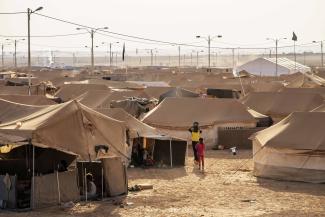Editorial
Opportunities for re-starting

European nations are ageing fast. The continent needs immigrants to thrive long term. German policymakers are aware of the matter, but thei action remains too slow to ensure the economy will have enough high-skilled experts in years to come. Nor does it guarantee there will be enough willing and able-bodied workers for less demanding jobs in the long run. It is welcome, however, that the number of politicians who stress the benefits of migration is growing these days. They used to be a rather small group.
And yet, the idea of additional foreigners working in the EU remains unpopular. Many European countries currently report high unemployment. At the same time, however, illegal immigrants are doing all sorts of work most EU citizens find demeaning. Household helpers from Croatia, for instance, clean apartments in Frankfurt and Berlin. The German public simply looks away.
At the global level, humanity is struggling with worse problems than unbalanced and distorted job markets. Millions of people are fleeing – or have fled – from violence, natural disasters and need. It is a shame that rich nations are unwilling to do much to help them. The way the EU shields itself from refugees causes recurrent alarm among human rights groups. Far too often we read news of people who hoped for a better life in the EU, but drowned because they wanted to reach European shores illegally in unsuitable boats. Ever more often, the mass media do not even report such occurrences. Civil rights activists express frustration about how the EU treats refugees; they criticise the absurdity of narrowly trying to distinguish worthy political refugees from unworthy migrants for whom livelihood is the driving motive.
The developmental angle, however, is hardly discussed. It matters a lot. Countries much poorer than even the least fortunate EU members must cope with masses of refugees. Niger and Jordan, to name only two, are currently accommodating thousands of people from Mali and Syria, respectively. In many poor countries, moreover, the fate of internally displaced persons IDPs is just as tough as that of cross-border refugees.
Highly developed world regions miss the point that refugees and IDPs deserve some kind of prospect. Frustrated young men who idle in refugee camps, exposed to radical ideologies and longing for revenge, are extremely dangerous. Such settings invigorated the Taliban, Palestinian extremists and Hutu militias in Africa’s Great Lakes region. More prudent policies in support of refugees could have averted problems that continue to haunt humanity, including rich nations.
The irony of the matter is that, when a crisis region has a real opportunity to re-start, it benefits considerably from returning refugees who enjoyed asylum in western nations and know democracy – including fundamental freedoms to choose for oneself – from personal experience. These people contribute to a meaningful new beginning. Though rich nations have a stake in not leaving refugees to themselves, they are not
rising to the challenge.







